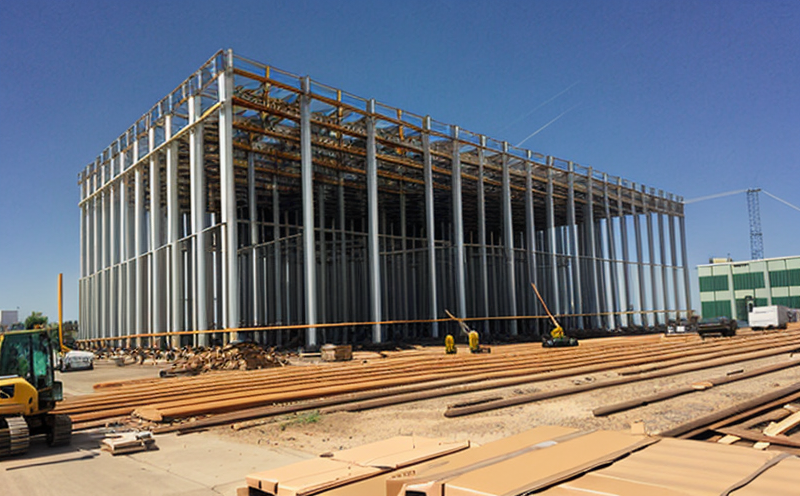Load testing for structural integrity
The Ultimate Assurance Load Testing for Structural Integrity with Eurolab
In the fast-paced world of construction and engineering, ensuring the structural integrity of buildings, bridges, and infrastructure is paramount to preventing catastrophic failures and costly repairs. One crucial laboratory service that provides a vital safety net for businesses is load testing for structural integrity. Conducted by expert professionals at Eurolab, this meticulous process simulates real-world loads on structures to assess their ability to withstand extreme forces. By investing in load testing, companies can gain peace of mind and safeguard their investments.
What is Load Testing for Structural Integrity?
Load testing for structural integrity is a non-destructive laboratory service that evaluates the capacity of buildings, bridges, or infrastructure to resist various loads, such as wind, seismic activity, or heavy traffic. This process involves applying controlled forces to simulate real-world scenarios, allowing engineers and architects to assess the structures ability to withstand extreme conditions.
At Eurolab, our team of experts uses advanced equipment and methodologies to accurately replicate the stresses that structures face in the field. By conducting load testing, we can identify potential weaknesses or vulnerabilities before they become major concerns. This proactive approach helps businesses avoid costly repairs, minimize downtime, and ensure public safety.
The Advantages of Load Testing for Structural Integrity with Eurolab
Our laboratory service offers numerous benefits to companies seeking to safeguard their investments
Enhanced Public Safety By identifying potential weaknesses or vulnerabilities, load testing ensures that structures are safe for occupants, users, and nearby communities.
Cost Savings Avoiding catastrophic failures and costly repairs is a significant advantage of load testing. Our service helps prevent unexpected expenses and minimizes downtime, allowing businesses to maintain their operations and revenue streams.
Compliance with Regulations Load testing meets or exceeds industry standards and regulations, ensuring that structures comply with building codes and safety guidelines.
Increased Confidence in Design By verifying the structural integrity of a design, load testing gives architects and engineers confidence in their creations, allowing them to refine and optimize future projects.
Reduced Liability Companies can minimize liability by demonstrating that they have taken proactive measures to ensure public safety through regular load testing.
Benefits for Specific Industries
Load testing is particularly crucial for the following industries
Construction Regular load testing ensures that buildings are safe and durable, reducing the risk of costly repairs or even collapse.
Transportation Load testing bridges and infrastructure helps prevent accidents caused by structural failures, ensuring public safety on roads and highways.
Energy Load testing power plants and transmission lines guarantees that structures can withstand extreme forces, minimizing downtime and maintaining energy supply.
Common Applications for Load Testing
Eurolabs laboratory service is ideal for various applications
New Construction Verify the structural integrity of new buildings or infrastructure before occupancy.
Existing Structures Assess the condition of aging structures to identify potential vulnerabilities.
Renovations or Upgrades Test modified or upgraded structures to ensure they can withstand additional loads.
QA Frequently Asked Questions
What types of structures are suitable for load testing?
Load testing is applicable to a wide range of structures, including buildings, bridges, power plants, and infrastructure.
How do you simulate real-world loads in the laboratory?
Our team uses advanced equipment and methodologies to accurately replicate various loads, such as wind, seismic activity, or heavy traffic.
What kind of expertise does your team possess?
Our engineers and technicians have extensive experience in structural analysis and load testing, ensuring that results are accurate and reliable.
How long does a typical load test take?
The duration of a load test depends on the complexity of the project, but most tests can be completed within 2-6 weeks.
What kind of documentation do you provide after the test?
We supply detailed reports and certificates of compliance, ensuring that clients have clear insights into their structures performance.
Get Peace of Mind with Load Testing for Structural Integrity from Eurolab
Investing in load testing for structural integrity is a wise decision for businesses seeking to protect their investments and ensure public safety. By partnering with Eurolab, you can rest assured that your structures will withstand extreme forces and maintain their integrity over time.
Take the first step towards safeguarding your business and reputation by contacting us today. Our team of experts at Eurolab is ready to provide comprehensive load testing services tailored to your specific needs.




